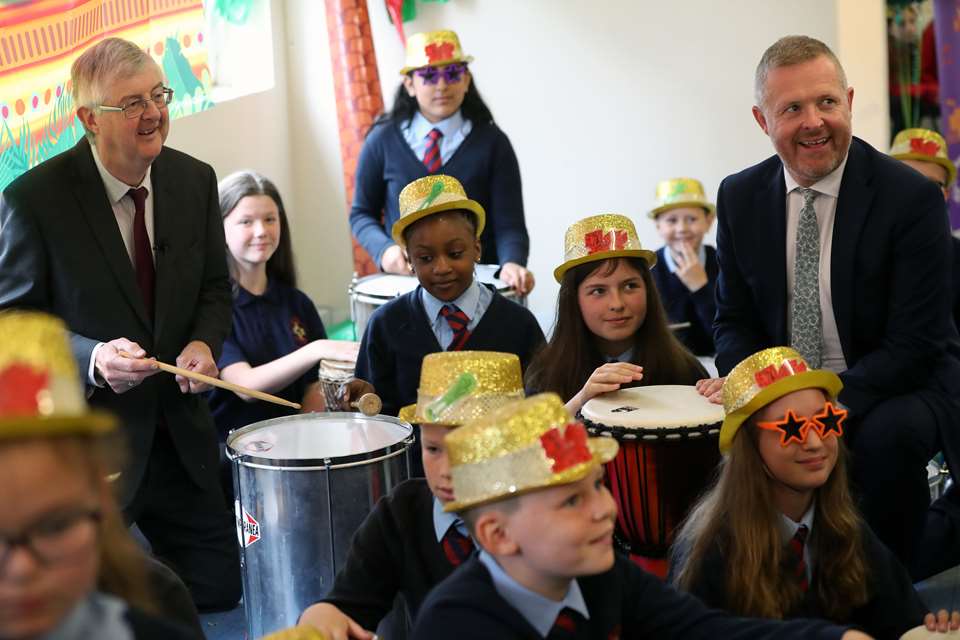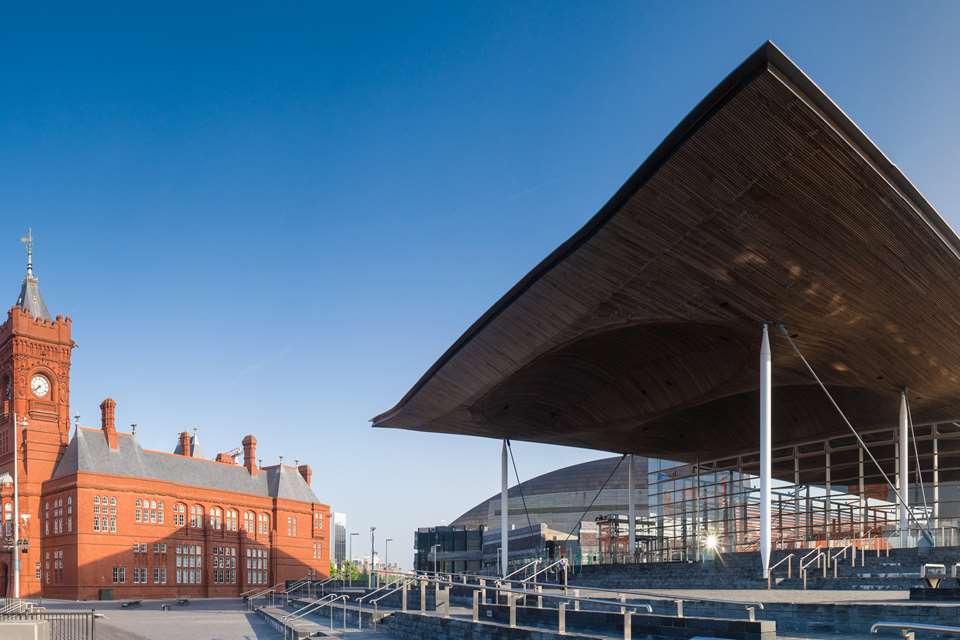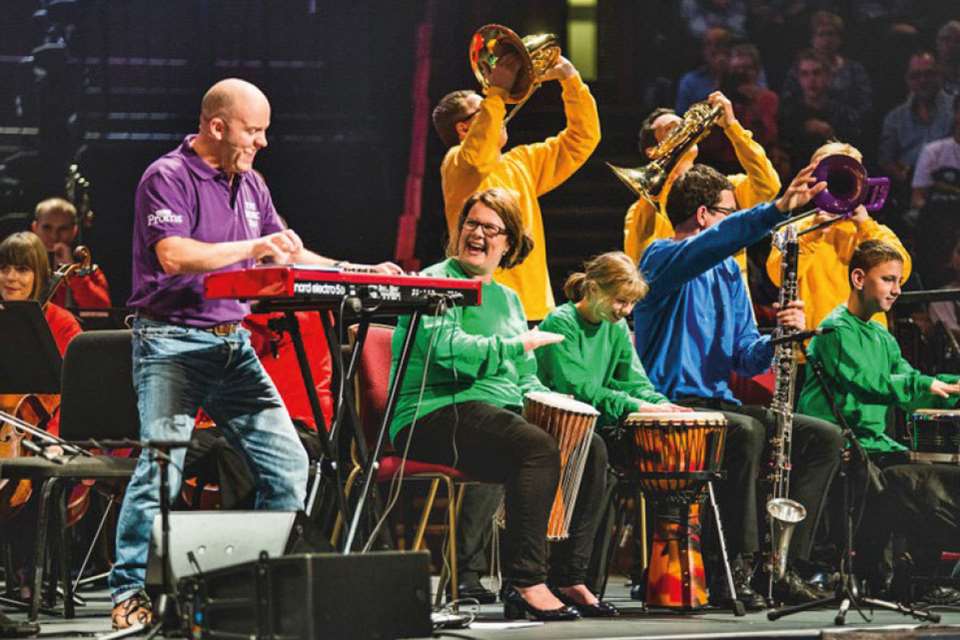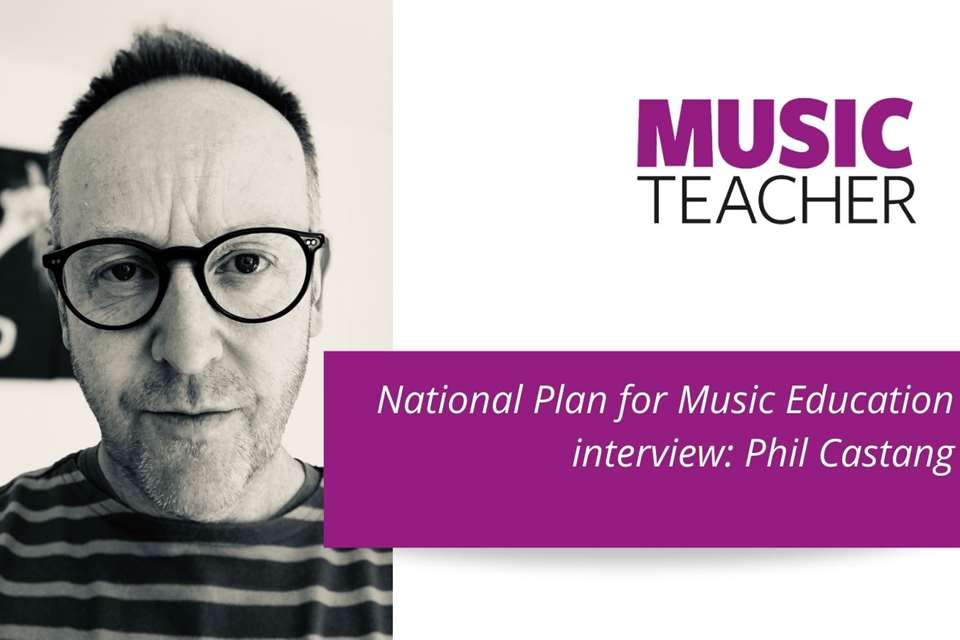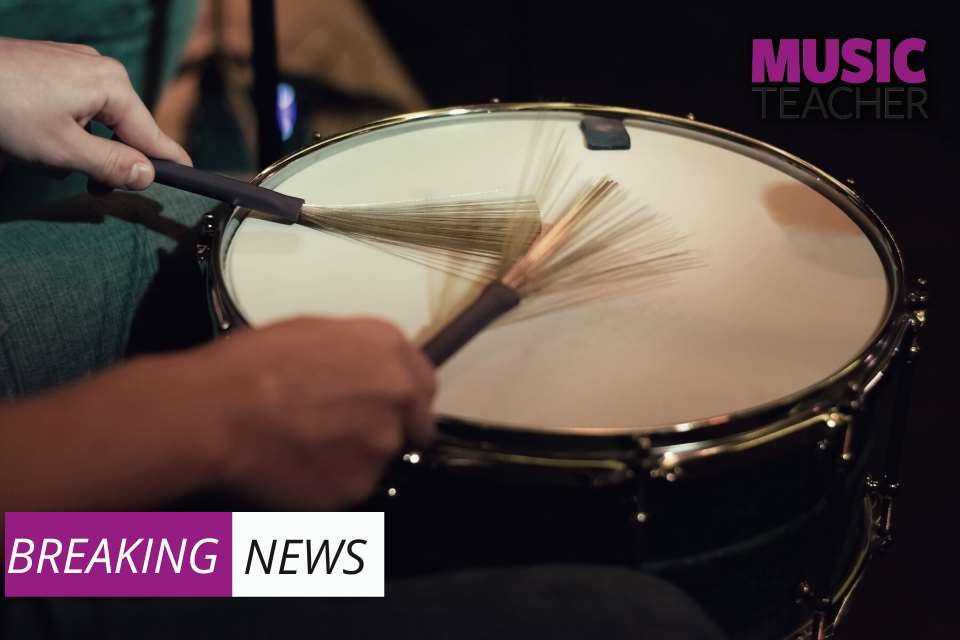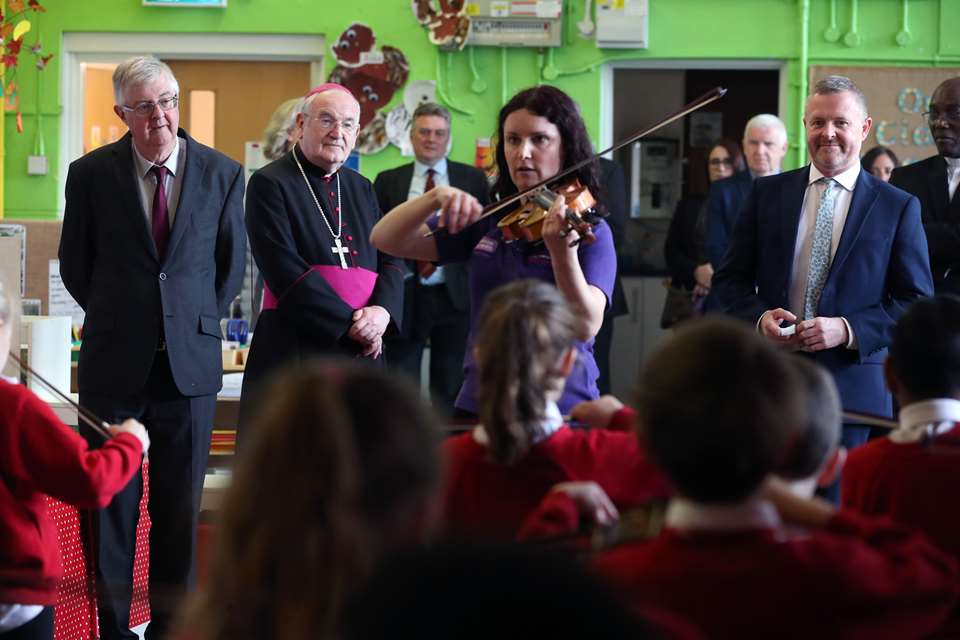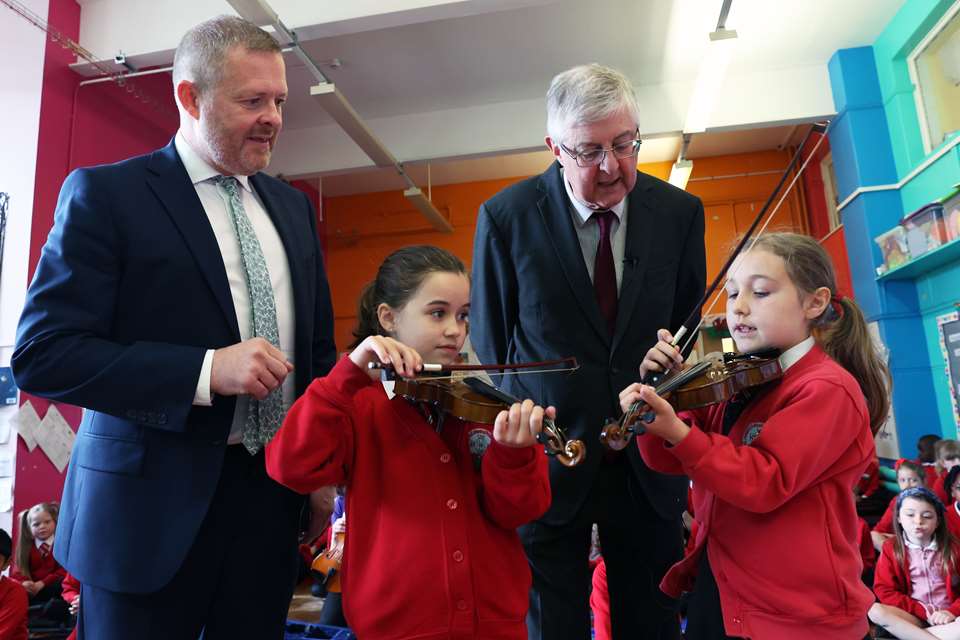Q&A: Emma Archer
Hattie Fisk
Saturday, October 1, 2022
Recently appointed as head of Cardiff and Vale Music Service after working as a plan manager for Wales's first National Plan for Music Education, Emma Archer meets Hattie Fisk to give a unique insight into what the future of music education in Wales could look like

COURTESY EMMA ARCHER
Hattie Fisk: How did the National Plan for Music Education in Wales, and your role as plan manager, come about?
Emma Archer: The whole process started quite a while ago now. There was an initial enquiry done by the Culture and Welsh Language Committee in 2017 about the future of music education in Wales. That produced a report called Hitting the right note which came up with 15 recommendations – the key takeaways being that a national plan should be written, and that the Welsh government should consider whether an arm's length body should be established to oversee the running of music services and education. Subsequently, there was a stakeholder group that was pulled together, which I was a member of, as I was chair of the Welsh Authorities’ Music Education Association (CAGAC) at the time. Following the report being published, the Welsh government then commissioned a feasibility study of the creation of the plan, so between 2017 and 2019 there was a lot of work done behind the scenes.
From there, all stakeholders agreed that there were several options put forward in terms of what the model could or should be. Then of course, Covid hit, so everything paused and for nearly a year the stakeholder group didn't meet. It was only during the latter part of 2020 that it was reestablished – luckily, this coincided with the Labour Party stating that it would establish a national music service in their manifesto, which gave it huge impetus.
HF: How was the Plan written, and who was part of the process?
EA: In writing the Plan, I worked closely with the Expressive Arts team at the Welsh government. We ran a consultation with local authority music services, independent music services, and sent a survey to schools and settings with a number of key partners, including BBC National Orchestra of Wales and the Royal Welsh College of Music and Drama. The consultation ran until September, when we pulled out a number of key themes that were recurring in this work, including cost access, lack of diversity, and lack of professional development.
It was a great process in terms of co-constructed writing because it wasn't a document that was drawn up behind the scenes and then presented to the sector, only to find it was not practically viable. It is useful for on-the-ground educators, and there's an easy read version as well to enable further accessibility.
I'm now back in the mix of rolling this out, and nobody can say that it's impossible, because a lot of people on the ground have had a say in what's in there and what the solutions are. So many drafts went back out to stakeholders for comments, there was a lot of painful editing, and at the end it didn't look anything like it had at the beginning. It is nice to be back on the shop floor running a music service again, but it has also been an interesting process seeing the Plan take shape. Working with the Welsh government on the Plan and taking the work forward, it has been brilliant to be back on the ground implementing it.
HF: One of the headlines from the Plan is the national library of resources, an expansion of the recently established national instrument library. How did this evolve?
EA: Mid-way through writing the Plan, I was able to put in a bid for musical instruments. All together it was £6.8m, with £5.5m spent on musical instruments, and half a million spent on specifically adaptive musical instruments for children with learning needs. We worked hard to make this work properly, and those instruments formed the basis of the national instrument library.
HF: How will the resources reach children in practice?
EA: The idea is that whether you're a child in Cardiff or in Bangor, you'll be able to get in touch with your local authority music service and ask if you can borrow an instrument. They will check the system and if they don't have one, they can see if any other local services do. We're going to prioritise children from low-income families first, because although £5.5m is a lot of money, that funding is spread between all sorts of instruments, including for whole class teaching. There might be some services that have got a large stock of instruments that they're adding to, and there might be others that have not spent money on instruments for 10 years or so.
HF: Where does the new National Music Service fit into this?
EA: We are currently going through a process with the new National Music Service lead body – within the Welsh Local Government Association (WLGA) – to roll out the next step. Mari Pritchard is the coordinator for the National Music Service, so over the next six months, she is going to be looking at our current systems for loaning instruments and identifying whether we will all move onto one system, or whether we use our existing systems to manage the data, and then feed this into a national level.
HF: After six months of the ‘first experiences’ tuition in primary schools, how will students from low-income families be able to continue playing if they want to?
EA: As part of the annual allocation of money to local authorities, there is an amount that is going to be ring-fenced for that purpose. We are not starting from a level playing field as some schools currently don't charge for lessons at all, and others use their Pupil Deprivation Grant for free school meals. It's going to have to come down to the discretion of individual local authorities to find the best fix for that funding, working with their circumstances and the cost-of-living crisis. It is hard to know if you have the capacity to respond until you know the scale of the demand, so it is difficult to make a cast iron commitment here. It is going to take some time to accommodate this, and we are going to have to manage expectations as to how quickly we can get it up and running, but the ambition is that we get to that point.
HF: One of the criticisms of the Plan is its lack of signposting to career pathways in music. Can you explain the reasoning behind this?
EA: One of the challenges when creating a plan is where to start. Those of us working with children in music know that it is not necessarily about being a career pathway – it is far broader than that. Learning an instrument or how to sing are not just for those doing it as a career, and it was important for us to reflect that, as funding is attached to this Plan. The impact of music on health and wellbeing is huge, and we wanted to retain that. We had to focus on it being about young people aged 3–16, and it needed to align with the curriculum. We must also work with theatres and amateur groups to build connections so children don't feel that the only place they can learn music is formally in school.
HF: What do you think the new National Plan and Music Service will bring to Wales that has previously been lacking?
EA: It will mean that we've got a shared vision of what needs to be delivered and what the key principles are for music education in Wales. It is important that we move towards that consistency. I don't think it's going to happen overnight, and we're going to have to acknowledge the fact that everybody is going at a different pace, but I think a clearer sense of partnership working should evolve. That collaboration is the first step, and the rest of it should follow.


